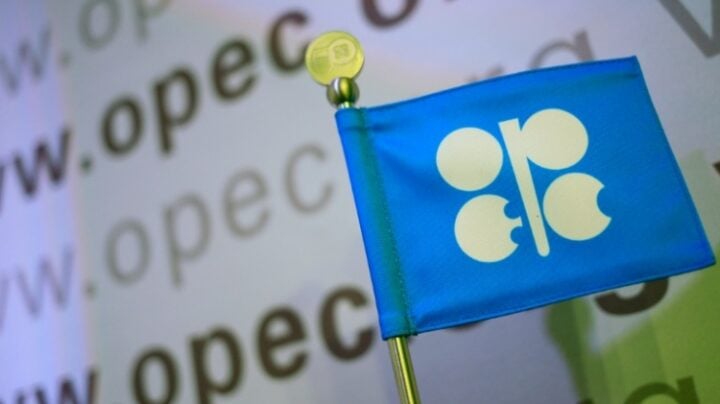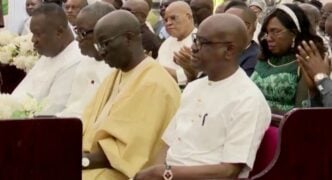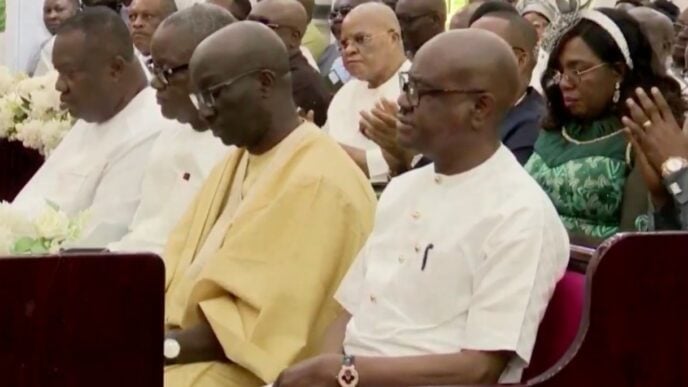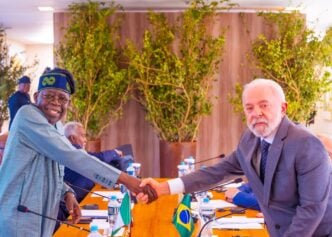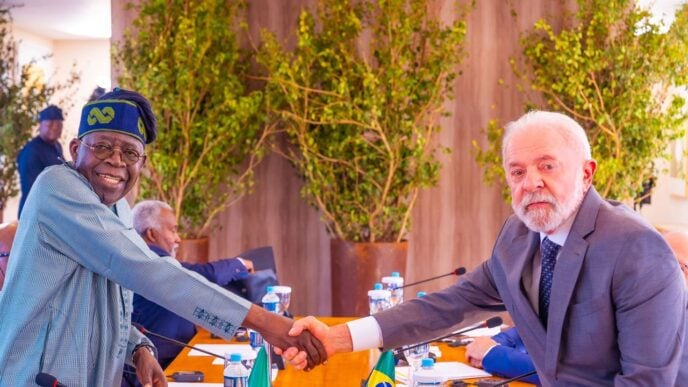The Organisation of Petroleum Exporting Countries and its allies (OPEC+) have decided to increase production by 548,000 barrels per day in August.
In a statement on Saturday, the oil cartel said the move follows eight member countries’ decision, after a virtual meeting, to review global market conditions and outlook.
The countries are Saudi Arabia, Russia, Iraq, UAE, Kuwait, Kazakhstan, Algeria, and Oman.
In April 2023, the eight OPEC+ countries announced additional voluntary downward adjustments of 1.65 million bpd, until the end of December 2026.
Advertisement
In November 2023, the countries announced an additional voluntary cut of 2.2 million bpd.
On December 5, 2024, the oil cartel said the countries will extend the adjustments until the end of March 2025, adding that the 2.2 million bpd adjustments would be gradually phased out on a monthly basis until the end of September 2026 “to support market stability”.
However, on March 3, the countries decided to proceed with a planned oil output increase from April 1.
Advertisement
On April 14, the countries also decided to increase production by 411,000 bpd for May.
On May 31, they raised production by another 411,000 bpd for July.
OPEC said the participating countries “will implement a production adjustment of 548 thousand barrels per day in August 2025 from July 2025 required production level”.
The oil alliance said this is in view of a “steady global economic outlook and current healthy market fundamentals, as reflected in the low oil inventories, and in accordance with the decision agreed upon on 5 December 5, 2024”.
Advertisement
OPEC said the production adjustment is equivalent to four monthly increments, adding that the gradual increases may be suspended or reversed subject to evolving market conditions.
The oil cartel said the flexibility would enable the group to maintain support for market stability.
OPEC added that the eight OPEC+ nations acknowledged the move would also give participating countries a chance to fast-track their compensation efforts.
“The eight countries reiterated their collective commitment to achieve full conformity with the Declaration of Cooperation, including the additional voluntary production adjustments that were agreed to be monitored by the JMMC during its 53rd meeting held on April 3rd 2024,” the oil alliance said.
Advertisement
“They also confirmed their intention to fully compensate for any overproduced volume since January 2024.
“The eight OPEC+ countries will hold monthly meetings to review market conditions, conformity, and compensation.”
Advertisement
The eight countries will meet on August 3 to decide on September production levels.
HOW INCREASE IN CRUDE OIL PRODUCTION AFFECT NIGERIA
Advertisement
The decision to raise production may reduce crude oil price, which is currently trading at $68.30 per barrel, and affect Nigeria’s ability to finance the implementation of the 2025 budget, which has a oil price benchmark of $75 per barrel.
In May, Muda Yusuf, chief executive officer (CEO) of the Centre for the Promotion of Private Enterprise (CPPE), told TheCable that if the price remains below $75 a barrel, Nigeria will face “a very serious challenge” for economic management as it poses a risk to the government’s revenue as about 60 to 70 percent of the country’s turnover comes from oil and gas.
Advertisement
The economist also said it will pose a risk to the exchange rate.
Also, Oyeyemi Oke, partner at AO2Law, said oil price falling below the benchmark will put pressure on the government to secure funding to implement the 2025 budget.
Already, the national assembly has extended the implementation of the 2024 capital budget twice, first in December 2024 and June 2025, breaking the January-December budget cycle.
The budget implementation was initially extended to June 2025, but has now been extended to December 2025.
On June 24, Abdul Ningi, senator representing Bauchi central, alleged that there are rumours the finance minister is selectively picking which projects to fund.
Also, Abba Moro, senator representing Benue south and senate minority leader, said many contractors who do not have money have “stalled in the execution of the projects, and we have the 2025 budget before us”.
